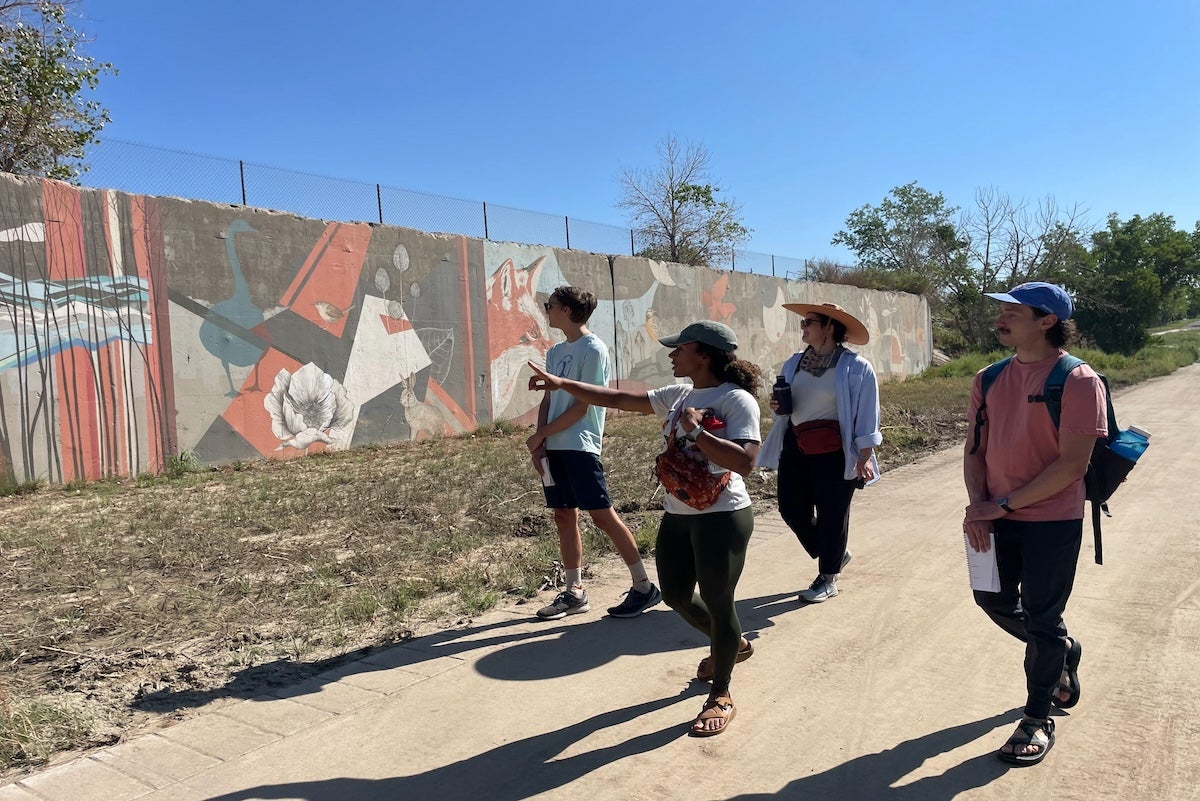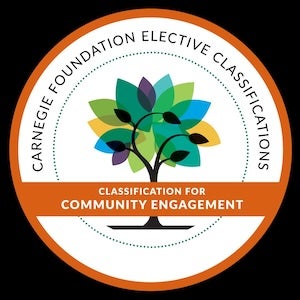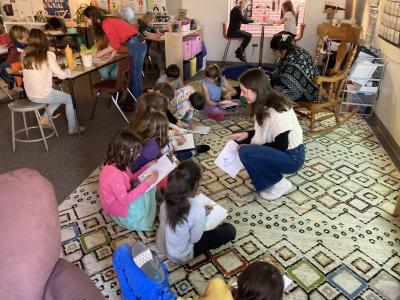Renewal of Carnegie Classification Renewal Spotlights Deep Commitment to Community Partnerships
In 2007, the University of Denver was among the first higher education institutions to receive the Carnegie Community Engagement Classification. The elective designation is the leading standard for assessing a university’s commitment to community engagement. Schools that wish to maintain this prestigious status must apply for re-classification every seven to eight years. In early January, the American Council on Education and the Carnegie Foundation for the Advancement of Teaching announced that DU had successfully earned its re-classification.
The re-classification, which DU also achieved in 2015, is hardly pro forma. Schools must undertake a rigorous self-study to demonstrate that they have advanced their commitment to fostering community partnerships that are
mutually beneficial. “Something to be proud of at DU is that this kind of community-engaged research, teaching and creative work shows up all across the university,” says Anne DePrince, associate vice provost for public good strategy and research.
The working group that led the re-classification effort documented ample evidence to support DU’s standing as an exemplar of a private institution whose research benefits the public good. “That’s a really important piece of DU’s story,” says DePrince. “Community engagement is a method that faculty are using in their scholarship and their teaching across disciplines. When universities work on problems with community partnership and expertise, we have a chance to improve understanding of issues and arrive at a better set of solutions together.”
The Center for Community Engagement to advance Scholarship & Learning (CCESL) is at the heart of DU’s robust efforts to institutionalize community engagement. Among its many functions, CCESL trains faculty and staff on the best practices for building local partnerships and offers programming that prepares graduate and undergraduate students to become agents of collaborative change within their communities. It also provides funding to faculty, staff, and students to carry out collaborative projects with community partners.
“We typically serve every academic unit on campus in one way or another,” says Cara DiEnno, executive director of CCESL. Through initiatives like Scholar Shop and DU Grand Challenges, CCESL has helped build and scale a community engagement infrastructure that has increased opportunities for DU researchers and students to partner with local agencies and organizations.
One example of the many collaborations that contributed to DU’s Carnegie Classification is the work of Cheri Young, an associate professor in the Daniels College of Business. She helped secure over $500,000 in grants to support a partnership
between students in her Human Capital course and the Ethiopian Community Development Council/African Community Center, a refugee resettlement agency. Young’s community-engaged scholarship of teaching and learning, which was recognized by the U.S. State Department, has been essential to the development of the Ready for American Hospitality program. The program, which pairs students from the Fritz Knoebel School of Hospitality Management with refugees in an immersive, service-learning course, highlights the mutually beneficial nature of such collaborative projects.
“Community engagement is a high-impact practice,” says DePrince. “When you look at the complicated public problems that our community is grappling with, or our state or country, these are problems that aren’t easily solved by one perspective or another.”
A distinguishing aspect of DU’s approach to community engagement is that community partners often serve as co-educators in the classroom. Students learn from these passionate and experienced individuals alongside DU’s world-class faculty and staff. All parties work together to develop innovative solutions to pressing problems.
“That’s the beauty of it—not knowing what’s possible until you have a conversation between academic folks and community folks,” says DiEnno. “The kinds of projects that ultimately get pursued are greater than if one person was sitting in an office thinking about them.”
On Jan. 29, the Office for Public Good Strategy and Research will host its second annual Public Good Celebration. The event, which will be held on the fourth floor of the Community Commons, will celebrate the Carnegie Classification along with the many collaborations between DU and community partners that have advanced the public good.










